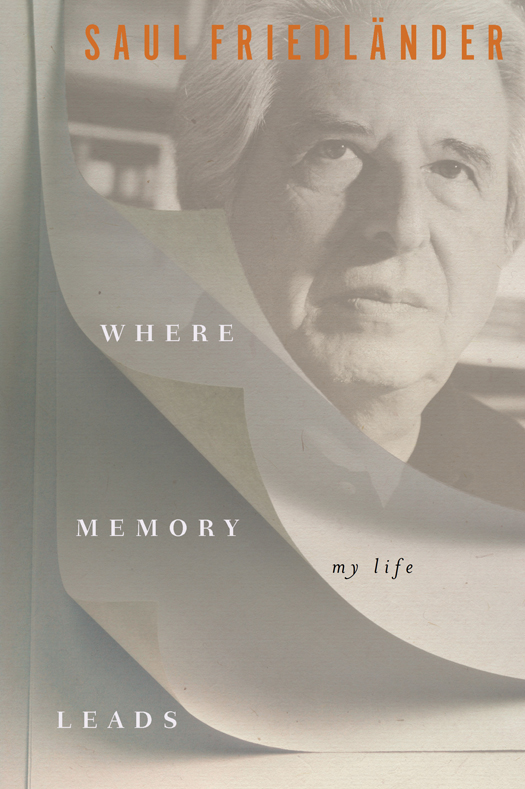
Where Memory Leads
My Life
کتاب های مرتبط
- اطلاعات
- نقد و بررسی
- دیدگاه کاربران
نقد و بررسی

A foremost Holocaust scholar carefully reflects on his harsh early years and lifelong academic mission in Jerusalem, Tel Aviv, Geneva, and Los Angeles.Writing this second memoir (When Memory Comes, 1977) in his early 80s, Friedlander (Emeritus, History/UCLA; Franz Kafka: Poet of Shame and Guilt, 2013, etc.) is acutely aware of a deteriorating memory and the need for emotional elucidation. He uses his early trauma of losing his parents during a roundup of Jews in southern France in 1942 as the point of departure for exploring the upheaval that characterized much of his adult life. Hidden in a Catholic seminary, the author was essentially orphaned when his parents were arrested at the Swiss border and sent to Auschwitz. Schooled in France as a fervent Catholic, Friedlander eventually ran away to join the Irgun youth movement in the new state of Israel in 1948--he admits his "core identity" is being a nonreligious Jew "yet indelibly marked by the Shoah. Ultimately, I am nothing else." From there, he began a peripatetic existence pursuing political science in Paris and becoming World Jewish Congress President Nachum Goldman's political secretary and later Shimon Peres' assistant, spending most of his time in Jerusalem. Ultimately, Friedlander would become both an apologist for Israeli policies and a critic of its racism toward the Palestinians. However, he embarked on graduate work in international studies in Geneva in 1961, pursuing his studies in his "monomaniacal way," supporting a family yet suffering from debilitating anxiety that required intensive drugs as well as psychoanalysis. His initial book exposing the complicity between Pius XII and the Nazi regime led him to devote his subsequent work to European fascism, modern anti-Semitism, and the Holocaust. A "difficult stay in Berlin in the mid-eighties," when he was confronted by a new wave of "apologetic" scholarship about Nazi Germany, reinforced his decision about his work. Though dry in tone, the book is haunting in scope and depth. COPYRIGHT(1) Kirkus Reviews, ALL RIGHTS RESERVED.

October 15, 2016
Israeli historian Friedlander received the Pulitzer Prize for The Years of Extermination: Nazi Germany and the Jews, 19391945 (2007). In this long-awaited conclusion to his two-part memoir, he traces his life from his decision to leave France for Israel in 1948 to his current position at UCLA. His is certainly a long, eventful life, filled with both internal and external contradictions and turmoil, along with great personal achievement. Born in 1932 in Prague, Friedlander fled with his parents to France as Nazi persecution of Jews intensified. In 1942, during the German occupation, he was hidden in a Catholic boarding school and even considered becoming a priest. After the war, with his Jewish identity reawakened, he arrived in Israel, and after serving in the army, he pursued academic inquiries that led him to France, Germany, and the U.S., and encounters and associations with personalities as diverse as Shimon Peres and former German admiral and convicted war criminal Karl Donitz. This is an often poignant rendering of a life brimming with both fulfillment and unsatisfied longings.(Reprinted with permission of Booklist, copyright 2016, American Library Association.)

























دیدگاه کاربران